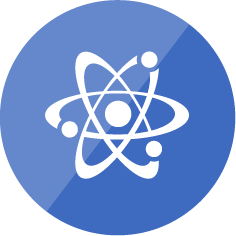
Be a Scientist!
What do paleontologists work on? How do meteorologists predict the weather? How do molecular biologists isolate DNA? In this interactive course, students live and work as different researchers every day and become familiar with the scientific method. Scientific fields such as Astrophysics, Paleontology, Meteorology, Oceanology, Genetics and Health Sciences, as well as environmental concepts such as water and energy resources, are presented in a fun and experiential way.
The young scientists put on the chemist's lab coat and perform an electrolysis experiment to harness hydrogen. They construct the human cell with simple materials, isolate DNA, delve into different medical methods, apply water purification technology as environmental engineers, make their own crystals as geologists, and tend their own crops as agronomists.
They embark through complex engineering concepts by designing and constructing their own pendulum. Through experiments, discussions and group work students gain knowledge of different scientific fields but also a deeper understanding of what it really means to be a scientist.
Learning Objectives
Design and implement an original experiment using all steps of the scientific method.
Collect, organize and analyze experimental data and observations and present the results.
Select, research and compare three scientific disciplines and describe their similarities and differences.
